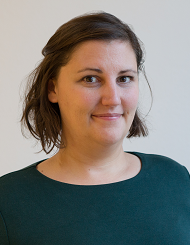Determinants of SARS-CoV-2 vaccinations in the 50+ population
With the arrival of effective COVID-19 vaccines, the main issue in the fight against the pandemic became how to quickly vaccinate as many people as possible to contain the pandemic and especially to protect those most at risk, e.g. the older population. After initial problems with vaccine supply have been overcome, the focus now is on a slowdown in vaccination uptake. The Survey on Health, Ageing and Retirement in Europe (SHARE) is in a unique position to provide insights into the reasons for vaccination hesitancy, as it very recently collected data on vaccination uptake and a number of influential factors from about 47,000 individuals in the high-risk 50+ age group across Europe and Israel. In this paper we will look at the interrelation of a willingness to get vaccinated with socio-demographic and health factors as well as living conditions and economic situations. The subjective and objective economic situtation as well as diagnosed physical illnesses and education show the strongest relation to vaccination hesitancy. The results in this paper provide a comprehensive picture of influential factors that might be helpful to further the success of the immunization campaigns in Europe.







